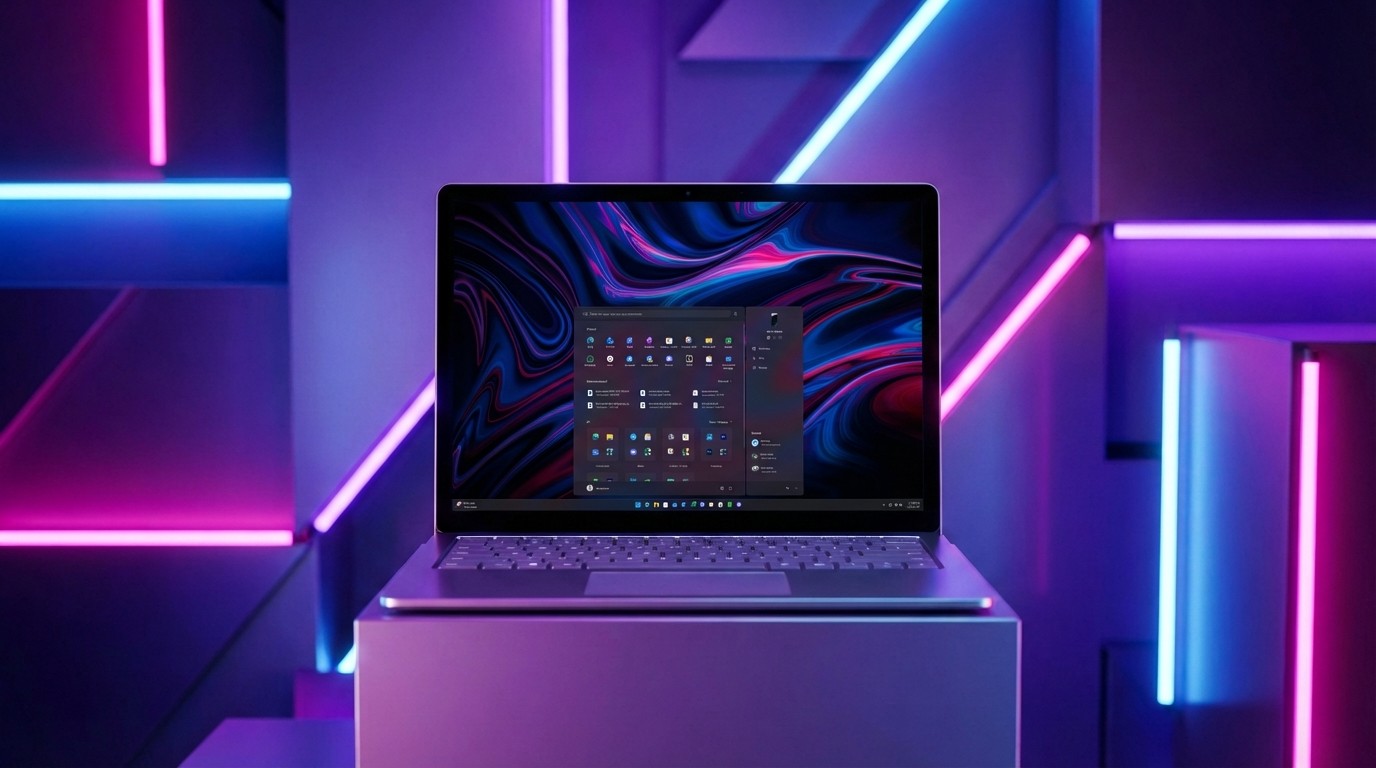With Xbox 'xCloud' game streaming, Surface 'Andromeda' should gun for a gaming focus
For years the idea of an Xbox handheld has been met with both hope and ridicule, but with Xbox game streaming on the horizon, it makes more sense than ever.

All the latest news, reviews, and guides for Windows and Xbox diehards.
You are now subscribed
Your newsletter sign-up was successful
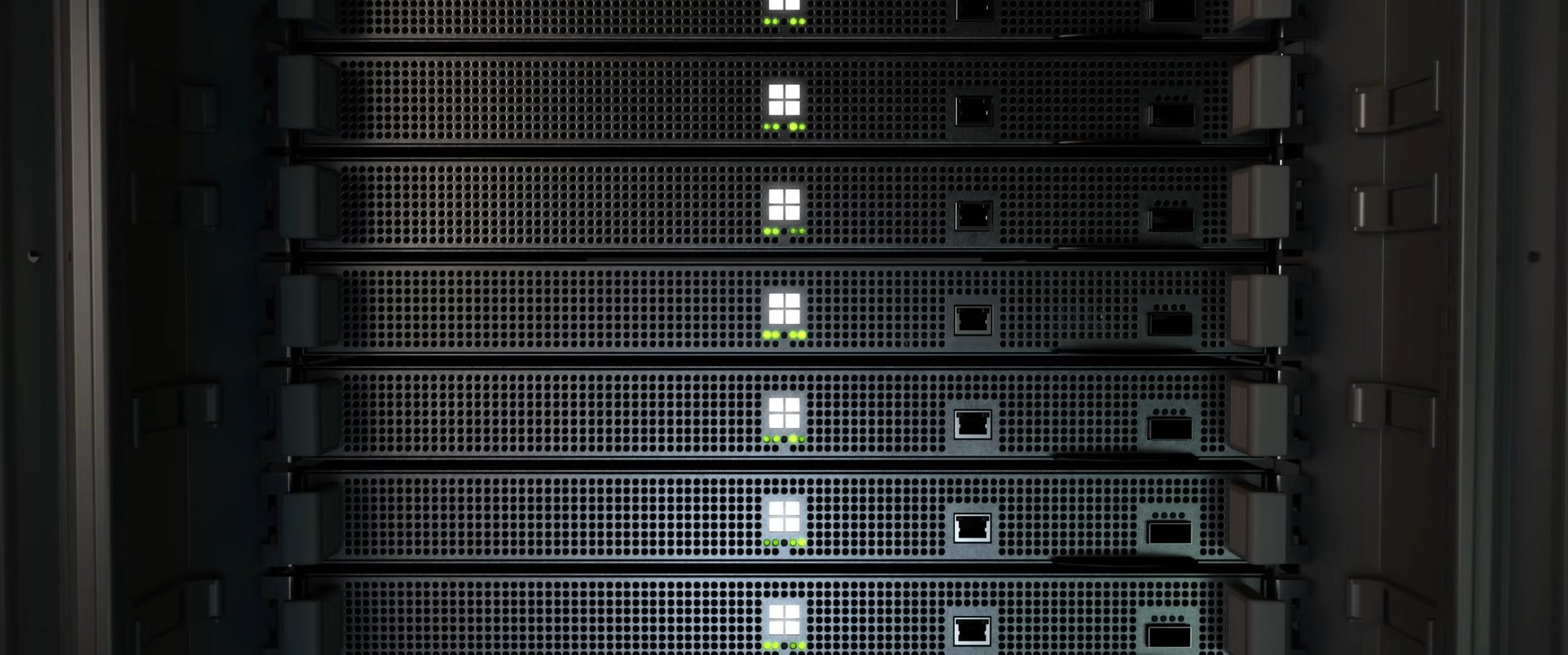
Microsoft's xCloud game streaming service was unveiled earlier this week, detailing how the company plans to reach "hundreds of millions" more gamers by streaming AAA Xbox content to mobile devices and beyond.
While Android and iOS are dominant in mobile gaming, those platforms are typically associated with predatory "pay2win" free to play-type titles, far flung from the premium experience we enjoy on PlayStation, Nintendo, Xbox, and PC. The blockbuster titles associated with core titles are extremely costly to build, however, making the need to reach a wider audience absolutely paramount for the industry's growth (and indeed, health). That's one of the driving factors behind Sony's PlayStation Now, NVIDIA's GeForce Now, Google's Project Stream, and now, Microsoft's Project xCloud.
Streaming games to devices far too weak to run them otherwise represents massive untapped potential in the market, particularly so on Android, which remains the world's largest mobile platform. Given Android's dominating position, there's no way they would be able to block xCloud or other competing game streaming services either, without raising eyebrows among anti-competition regulators across the globe. All Microsoft (and others) have to do, is get the service right. Naturally, Microsoft is arguably in a better position to do this than most, including Google itself, thanks to its vast established library of digital games.
However, the idea of playing core games on a phone is completely alien to many, particularly casual gamers who are perhaps more likely to play something like Candy Crush than Assassin's Creed Odyssey, for no reason other than the convenience of grabbing a free app and killing some time. Lowering the barriers to the point where Microsoft will be able to convert casual mobile gamers into core console gamers might be straight up impossible. That said, I think Microsoft has an opportunity, combined with Surface, to create desire among regular consumers by setting up a compelling hardware narrative.
Everything we know about Surface "Andromeda"
Surface 'Andromeda' or the Xbox Gameboy
Surface 'Andromeda' is a mythical, near-legendary rumor of a folding Windows tablet, designed to accompany your PC and mobile phone. So far, Microsoft hasn't even teased the existence of the device, which we only know about due to rumors, patent applications, and the occasional leak. The abundance of the rumors, however, helps us to paint a fairly accurate composite of what Andromeda could look like.
Andromeda would be able to ride the boundaries between many different form factors.
With a center fold, Andromeda would be able to ride the boundaries between many different form factors. Folded in half it would appear like a regular smart phone, flattened out, it could be used to multi-task across two different apps on separate displays. Put in tent mode, it could be used to catch a movie, and indeed, folded half way, it bears an uncanny resemblance to the Nintendo 3DS.
All the latest news, reviews, and guides for Windows and Xbox diehards.
If Microsoft is planning to bill Andromeda as a PC companion, rather than a smartphone replacement, ignoring its potential as a gaming platform would be absolute craziness. PC is synonymous with gaming, and will remain so indefinitely. Andromeda would represent a unique opportunity to create differentiation against competing mobile hardware, and Microsoft has the tech to make it happen.
CShell, UWP, and WinCore OS
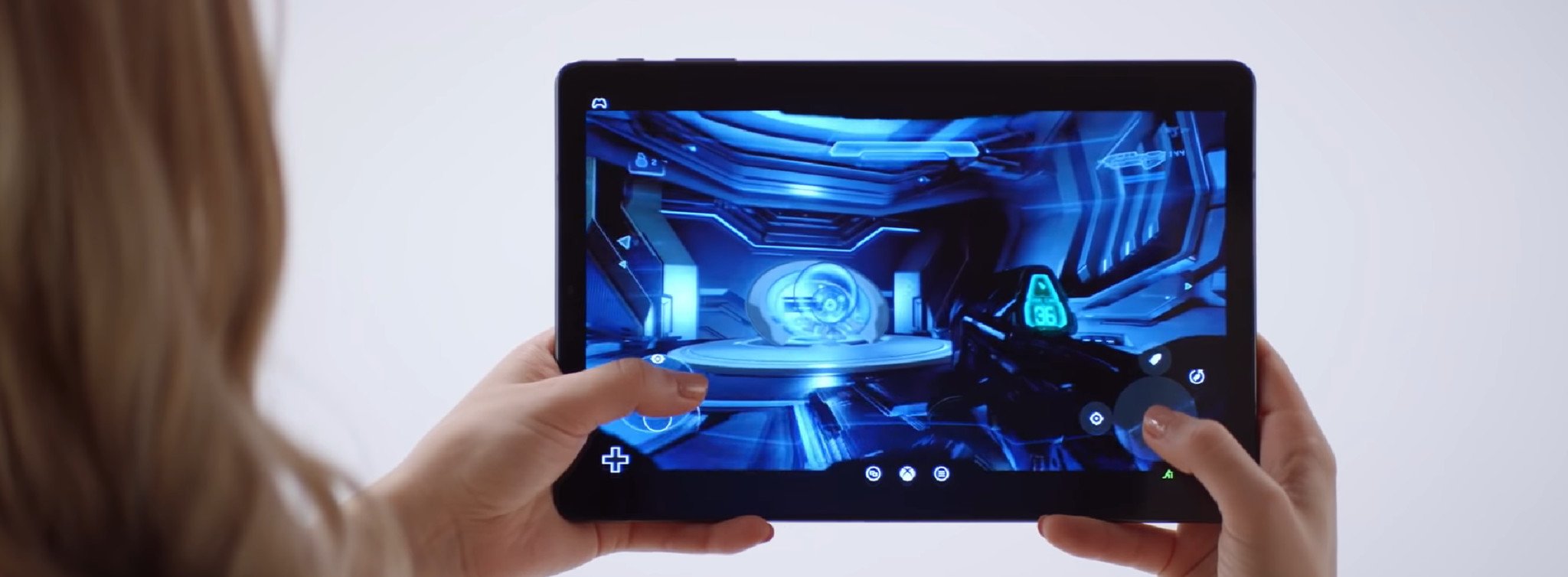
There was a hint in the xCloud reveal blog post that Microsoft will allow developers to customize their own touch controls on a per-game basis, rather than just fall back on a basic ABXY digital Xbox controller. Indeed, smartphones won't have shoulder triggers, making the need for a high-quality touch overlay absolutely necessary to ensure a decent experience. Microsoft also showed off smartphones docked with an Xbox controller utilizing some kind of grip housing, but it's not the most elegant solution.
We've already seen some rumors internally that leveraging the dynamics of CShell, combined with patented features of Andromeda and the modularity of WinCore OS, a scenario where the lower portion of the display could be altered dynamically to accommodate gaming is entirely plausible.
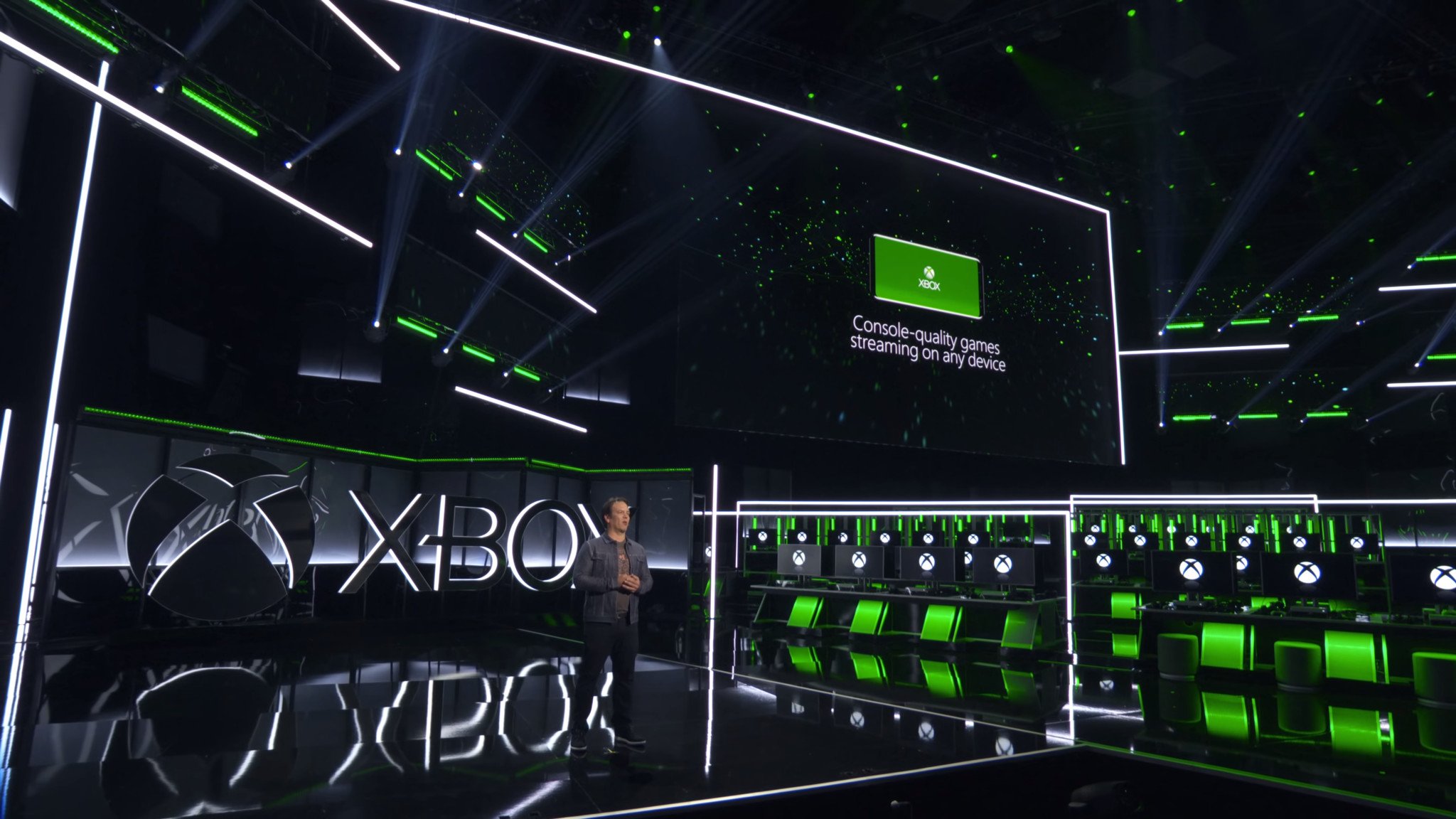
Envision a scenario where you begin streaming Sea of Thieves on the upper portion of the display, while the lower portion morphs into a digital gamepad bespoke to the game, with iconography that explains what each button does, rather than simply showing the regular "ABXY" Xbox buttons. Lining up these APIs with any two-screen form factor Android is likely cooking up would be a huge win as well, even if it isn't Microsoft who ends up popularizing the idea of a dual-screen display.
In either case, Andromeda could serve as a stunning example of how game streaming could inform and improve existing smartphone form factors to accommodate new gaming scenarios. Squeezing all of those UI buttons onto a single display isn't always going to be the most intuitive solution.
Minecraft already shows this is possible
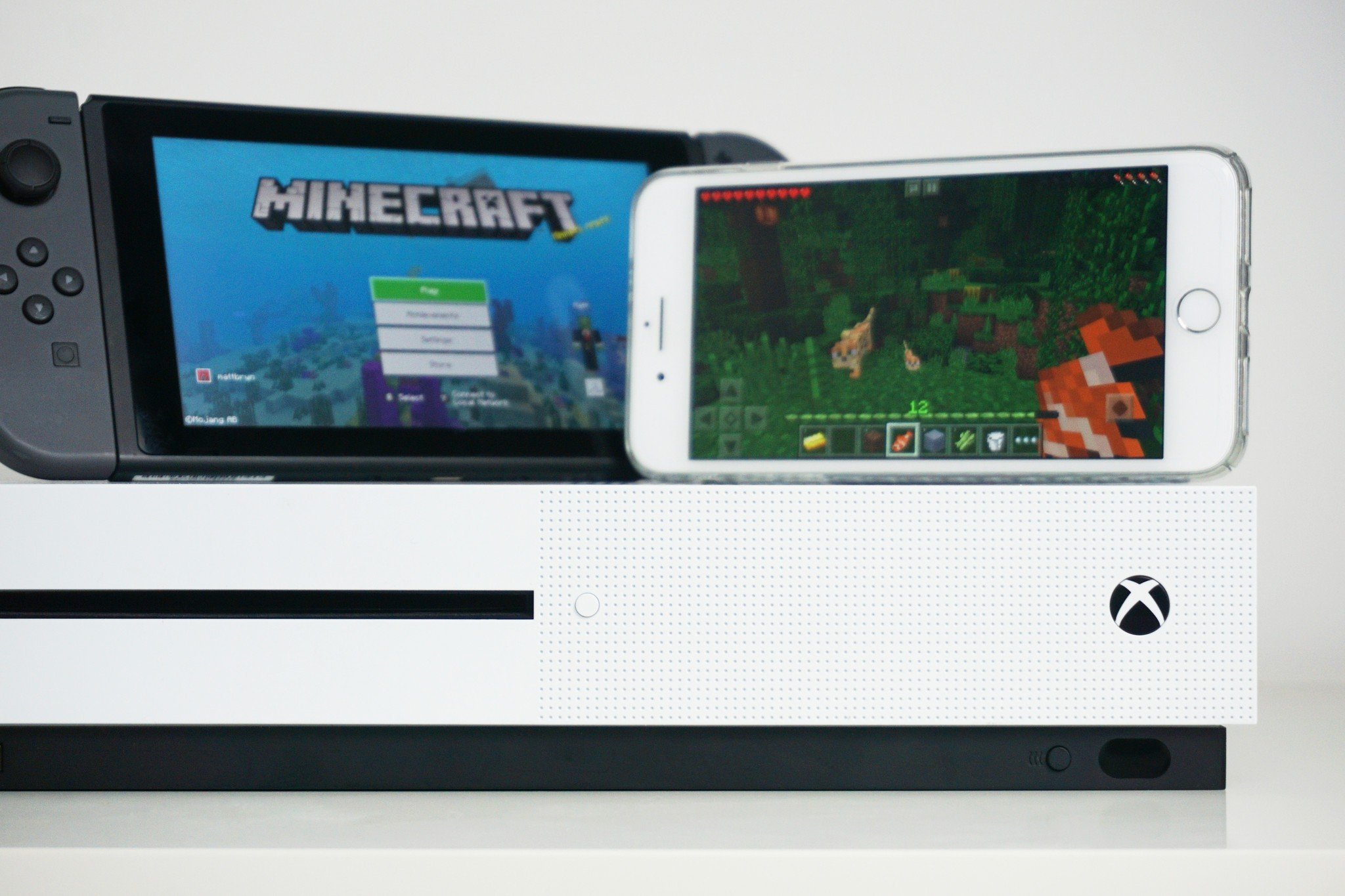
It's hard to discuss these sorts of scenarios without mentioning the Bedrock edition of Minecraft, which is a pioneering game in many ways. The blocky craft 'em up continues to be a force to be reckoned with, reaching over 90 million active players at the most recently-announced milestone. Why is it so successful? It's because it is bloody everywhere.
You can get Minecraft on your phone, you can get it on your tablet, you can get it on VR, on Nintendo Switch, on Xbox, and more. Not only is it everywhere, it also features one of the most dynamic user interfaces out there, conforming to the device you're using. There is no place where this is more apparent than UWP.
As soon as Minecraft for Windows 10 detects you're using an Xbox controller, it just works, joystick cursor snapping automatically to different UI elements. If you touch the screen, suddenly, touch controls pop-up automagically. Jiggle a mouse, and boom, now it's a tried and true PC game. All of this works, dynamically, without rebooting the game, without flipping a setting switch. The game just detects how you're playing, and then accommodates you.
There's no reason why games streamed from xCloud can't work in the same way, particularly now Xbox will support mouse and keyboard controls natively. Running in a UWP container on a Microsoft server, Microsoft will be able to send that dynamic experience to whatever device you're using, conforming to your inputs dynamically. The fact Minecraft does this dynamically across devices is a huge factor in how it became so pervasive.
Andromeda as a showcase device
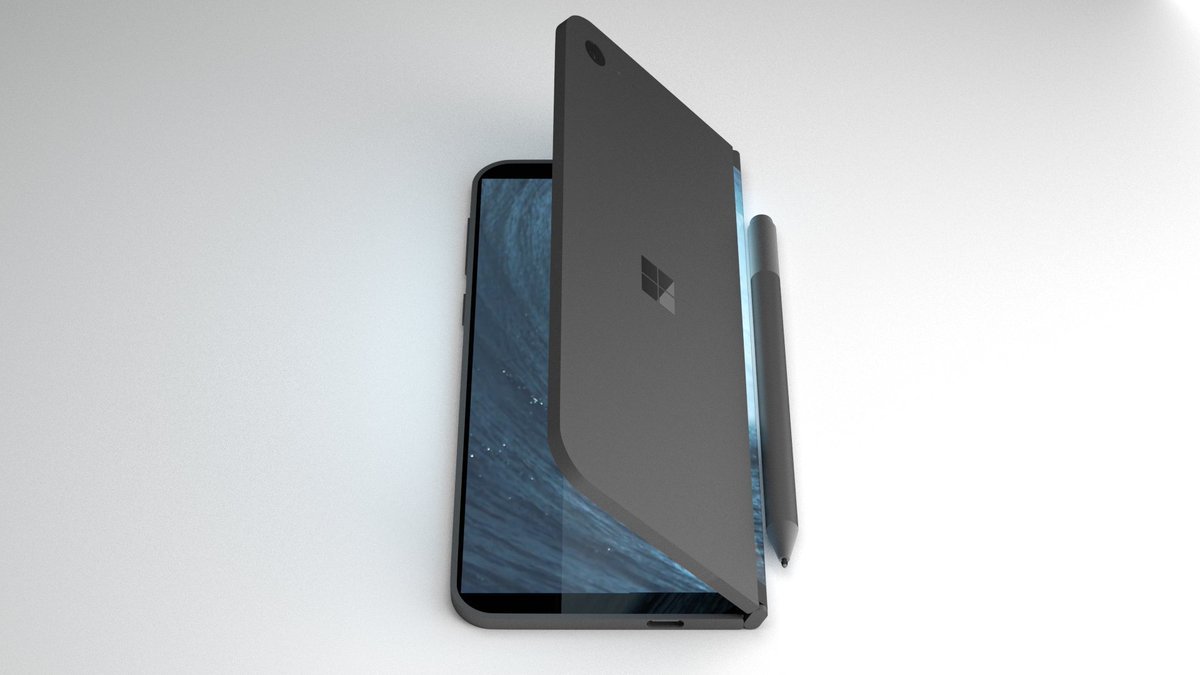
As was true with Windows 10 Mobile, the idea of Andromeda becoming a mainstream hardware staple seems unlikely. It will struggle with the same issues Windows 10 Mobile struggled with, a lack of quality apps, primarily. But that needn't be true for games, thanks to xCloud.
Like the Surface Pro before it, Andromeda should serve as an example to PC manufacturers, and even Android manufacturers, on how form factor innovation can create new app ecosystem scenarios and new possibilities. While the idea of a two-screen display might not be the most compelling for things like multi-tasking productivity apps, it almost becomes a necessity to facilitate on-screen controls of more complicated games.
I say bring on the Surface Gameboy Xboy, and lets see what Microsoft software and hardware can really do when working in harmony.

Jez Corden is the Executive Editor at Windows Central, focusing primarily on all things Xbox and gaming. Jez is known for breaking exclusive news and analysis as relates to the Microsoft ecosystem — while being powered by tea. Follow on X.com/JezCorden and tune in to the XB2 Podcast, all about, you guessed it, Xbox!
